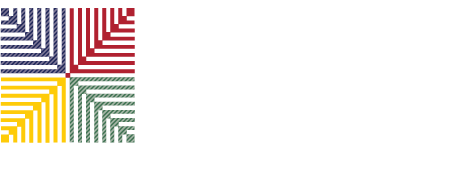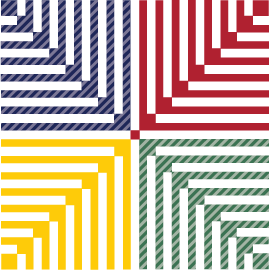

BPFF: Tell us a little about yourself and your background—how did you become interested in Jerusalem?
BV: I am a freelance journalist and filmmaker. Home is my second movie. The reason why I got interested in this subject is because my previous film was also on Palestine—it was about a Palestine marathon in Bethlehem, and we followed a runner from Gaza who wanted to participate in the marathon, and we followed the organizers. And it was through the organizers that I was asked to submit a proposal for a film about Palestinian youth living under occupation in East Jerusalem. That’s how I got to make this movie.
BPFF: Given that it is the 50th anniversary of Israeli occupation of Jerusalem this year, your film is very timely. How did you find and choose Muna, Nayef, and Omar, the characters in the film? Let’s start with Nayef, who lives in the Silwan neighborhood of East Jerusalem. What was it about his story that you thought was important to include?
BV: We wanted a character who traveled from place to place, which allowed us to show Jerusalem—because housing obviously was a main topic of the film, because it is so difficult for Palestinian Jerusalemites to find housing, to keep their property and to remain in the city. Pressure is placed on them [to leave] in various ways. We wanted a character who went from door to door and could connect different characters. First, we thought of a plumber or someone who repairs houses, because it is very hard to get permission from the Israeli authorities to renovate Palestinian houses, so a lot of Palestinian houses need renovation. But apparently there are very few plumbers in Jerusalem. So Nayef was an interesting figure who does the same thing—he goes from house to house with his donkey and does little jobs and moves construction materials around. He really is a central figure in his own neighborhood. Everybody knows him, and from time to time he gets odd jobs to move things around. That’s how we found him.
BPFF: When you say that “there has been pressure placed on them in different ways”, can you elaborate on what you mean? Who is putting pressure, what type of pressure, and what are some of the situations Palestinians face in East Jerusalem?
BV: It is all very technical and legal. To be honest, I am not an expert in the legal side of things. We studied this at the time of the film, and that was a year ago, so I don’t want to misstate things now. However, first of all, it is very, very hard for Palestinians in Jerusalem to get permits to build. The Palestinian neighborhoods are under severe pressure of overpopulation, but they hardly get any permits from Israel to build elsewhere. That is Israeli government policy—not to allow them more permits to build. Different construction works, parks, motorways, and other infrastructure is also being built strategically to cut off certain Palestinian neighborhoods—to surround them so they cannot expand. Those are some of the techniques that are being used to put the population under pressure.
BPFF: It is a deliberate policy to impose a certain demographic balance?
BV: Yes. We took a few specific examples. The example of Muna is an extreme example in that the settlers have taken over and occupied one part of her family’s house. But many families live in very small houses that need expansion. Then it is extremely hard to get a permit from the municipal authorities to do that. But if they go ahead and expand anyway without a permit, they risk demolition. And there are plenty of cases like this. Demolitions of Palestinian homes are on the rise in East Jerusalem.
BPFF: So Muna’s case—one aspect of it is maybe unusual, the actual settlers taking over. But the restrictions on building are the norm, not the exception. What about Nayef’s situation in Silwan? Describe a little about that and how typical or atypical it is.
BV: Nayef’s situation is actually very similar to what I just described. He wants to find a solution to house his animals, and he built something on his own property, but he did not get the permit, and the structure is at risk of demolition. The situation for Nayef is sad, because he is in a much more precarious situation than Muna, who is educated, from a more middle-class family, and who is getting support from international NGOs. Nayef is very much on his own. He can barely read and write; he knows little about his rights; and it is hard for him to understand the situation when things happen to him. So that makes him very precarious and dependent on the good will of lawyers who want to help him.
BPFF: Tell us about Omar: How did you find him and why did you decide to include him in the story? He is illustrating a whole different situation.
BV: We were interested in working with Omar’s father, who is a famous Palestinian architect who worked with the Jerusalem municipality. Initially we went to his house to film, but he was unable to continue. However, Omar was there during the interview as well and he was able to throw in a different perspective. We wanted to show the situation for a Palestinian in Jerusalem from very different angles—from the working class, middle class and then maybe Omar represents the upper class. Because he has Israeli citizenship, he also got the option to leave East Jerusalem and live elsewhere in Israel. The occupation affects all three of them. There are some similarities, but there are also very particular aspects to each character.
BPFF: Is it fair to say that what is common among them is that they don’t have a tolerable existence in the city of Jerusalem?
BV: Exactly. The reason why we called the film Home is that this is what it is all about – they all feel at home in Jerusalem and they all fight for its very heart, but at the same time, it is very, very hard for them to feel at home. That is the whole tension of the film: A place where they want to feel at home but they cannot. It is a struggle.
For Nayef there is no way out at all—he surrendered to his situation. Muna has the aspiration to move beyond it and to solve it. Omar has an easier way out, in a sense, and he weighs his options and has tried to feel at home in Jerusalem, but he also considers it is not worth it to him to fight this struggle for the rest of his life.
BPFF: So he is looking for another home. Muna is determined to keep her home and fight for it, while Omar is giving up and getting out.
BV: Yes. What I take away from making this film is that I think it is my main privilege as a journalist and a filmmaker is to be able to meet interesting people and to get to know new worlds. Each new project brings me into a new world. You meet new people and dive into their world for a short period but intensively. And for me, as a filmmaker, that is amazing. For example, to feel the strength of a young woman like Muna who has lived throughout her life in very difficult circumstances but still finds the strength to look ahead, to wish for a brighter future, to hope for solutions and remain convinced that she can make a difference—I think that is amazing. That is the message I want to convey and emphasize—their message.
Home screens on Monday, October 23rd at the Cambridge Public Library at 5:00 pm as part of We Are Here. Free and open to the public.
View the other films in this show and the full festival schedule here.

